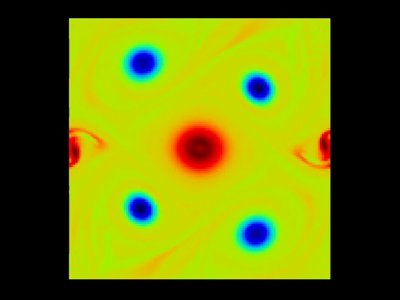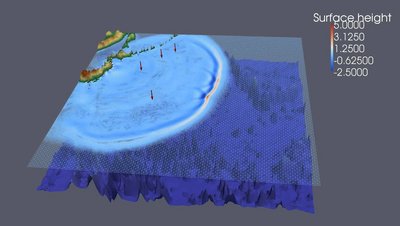This lecture will be held in English.
Time Integration and Differential Equations (IN2387)
| Lecturer (assistant) | |
|---|---|
| Number | 0000002460 |
| Duration | 4 SWS |
| Term | Sommersemester 2021 |
| Language of instruction | English |
| Dates | See TUMonline |
Overview
The fundamentals of this will be also covered in this course.
Lecturer
This course will be given by Dr. Martin Schreiber (and maybe invited speakers).
Teaching material and further information
- All material and further information is made available via the moodle website
Moodle: https://www.moodle.tum.de/course/view.php?id=63563 - Note, that this webpage will not be updated any further, so please check out the Moodle website regularly for any updates!
Corona-related information
- Due to the currently still ongoing Corona issues the lectures of this course will be prerecorded and made available via the Moodle webpage.
- The tutorials will be given live via a Zoom channel.
Prerequisites
- Course: Numerical programming.
- Note, that the tutorial and the hands-on work (homework) is based on Python. Some fundamental knowledge (e.g. from a tutorial) about Python and the numpy module would be helpful.
Places, dates and times
- The recordings of the lectures will be made available via Moodle (and probably uploaded the week before). Hence, there's no place and time.
- The tutorials and hands-on work will be announced also via the Moodle website. There's a certain flexibility regarding the concrete time of this tutorial.
Brief summary
This course targets an intuitive understanding of time integration methods for solving ODEs as well as PDEs driven by concrete examples rather than pure theory.
"Intuitive" here means that there is significantly less mathematical theory in contrast to other courses from the mathematics department in this area. Instead, there will be more hands-on work as part of tutorials & home works.
Teaching targets
- Understand the basics of time integration methods
- Ability to understand and analyze the interplay between time and space discretization for initial value problems with ordinary and partial differential equations.
- Ability to develop solvers for differential equations, to apply as well as to evaluate them.
- Understand the impact of different space discretization methods on the time integration and vice versa.
- Understand novel time integrators (such as parallel-in-time) which are able to overcome limitations of standard time integrators.
Links
- TUMOnline: https://campus.tum.de/tumonline/wbLv.wbShowLVDetail?pStpSpNr=950563736
- Moodle: https://www.moodle.tum.de/course/view.php?id=63563 (You might need to register first for this course to access this website!)
Content
Content in parantheses is optional and might be provided upon request by the attendees.
- Basics
- Basics of ordinary differential equations
- Runge-Kutta families of time integration methods
- Dispersion errors
- Stability analysis
- Convergence
- Splitting methods
- (Multi-stage solvers)
- Exponential integration
- Spatial approximations
- Nodal / Interpolation
- Global basis functions (Fourier / polynomial based)
- Local basis functions (overlapping non-overlapping)
- PDEs
- Eulerian / Lagrangian formulation
- Examples: Heat, Advection, Wave, (Dispersive equation)
- Properties:
- Fourier analysis
- Eigendecomposition
- (von-Neumann stability analysis)
- Characterization
- Discretization of PDEs
- Finite differences
- Excursion to Computational modes
- Galerkin methods
- Spectral methods (global)
- Classical finite elements
- Cell-local Galerkin methods
- Spectral Element methods
- Disconuous Galerkin methods
- Example Finite volumes
- High-performance computing
- Parallelization
- Vectorization
- etc.
- Advanced time integration methods
- Spectral Deferred Correction Methods
- (Semi-)Lagrangian methods
- Parareal
- Parallel Full Approximation Scheme in Space and Time (PFASST)

